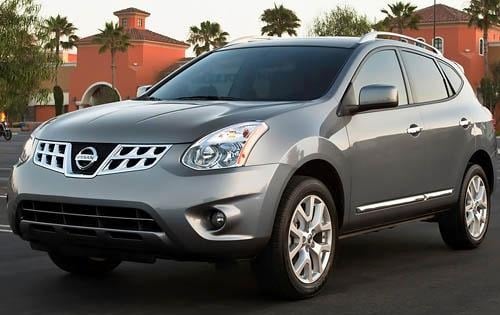Last year I put on a running workshop at a local gym. I thought most people would want to know about injury prevention and how to not crap themselves while running, but I was wrong. The thing runners wanted to know the most about was how to run faster.
I’m a slow runner or a fast runner depending on who you talk to. It’s all relative. The 3 hour marathoner thinks I’m slower than a constipated snail. My grandma thinks I’m fast and wants my autograph.
If I am going to focus on competing with myself and not comparing myself to others, I’d say I’m doing okay. I started running four years ago and was able to shave 20 minutes off between my first marathon (January 2009 – 4:03) and my second marathon (May 2010 – 3:43). This 20 minute PR was no accident. I chose a course that was “fast,”trained my butt off and did race specific training. I know 3:43 isn’t super fast, but for me it was quite an accomplishment.
Me and my cheetah getting our BQ
While remaining uninjured and healthy is my top priority, next in line is getting faster. I still have a lot of room for improvement. The question is whether my 45 year old self will allow for it. Between form changes and heart rate training, I’m going to find out all that I can do.
I’ve done a lot of research on how to get faster. I used the Run Less, Run Faster program when I was training to qualify for Boston (and it worked, probably because I was also doping. JK). I loved this plan because it had me only running three days per week, but each run had a purpose: long, interval and tempo. I was able to do lots of cross training and yoga, and to keep my mileage low enough that my body never maxxed out. This is certainly one tactic, but there are more to consider.
I know not every runner wants to speed up. Many people are completely satisfied where they are and enjoy running without striving to be faster, or to go longer and harder. But, for those of us who want to increase speed, there are some things to try.
Tips for How to Run Faster (That May Or May Not Work):
- Speed it Up. But, not all the time. Don’t run every run at the same pace. Do long runs slower to tap into fat as fuel and to spend time on your feet. During the week, add in tempo runs and/or intervals. In marathon training, I’ve found the Yasso 800s to be the ticket.
- Head for the Hills. Ever heard the expression, “Hills are speed work in disguise”? Hills suck and will make you cry, but the slower pace will allow you to focus on form and efficiency. Running hills strengthens hip flexors and increases power: factors that contribute to an increase in speed and performance. Added bonus: running hills provides a high intensity workout without the amount of impact and pounding you’d have on flat terrain (since you are going slower, with fewer steps).
- Lose weight. It’s harder to run faster when you are carrying more weight. If you don’t believe me, carry a 10 lb. sack of flour in your pants during your next run.
- Increase Cadence: “Studies have shown that the world's fastest long-distance runners have a higher cadence than the average runner” (source). The magic number of steps per minute while running? 180 (90 per foot).
- Train With a Heart Rate Monitor: This takes major patience, but if you are willing to stick with it, I am convinced speed will come with less effort. I wrote a post about this HERE.
- Hit the Trails: Running on trails not only gives you a high intensity workout because you are usually climbing mountains, but you also get a different kind of running experience. Uneven footing increases muscle stability strength. Also, trails are a softer and more forgiving surface than asphalt. Bonus: you won’t get hit by a car (although you might get eaten by a bear).
![[IMAG06425.jpg]](https://blogger.googleusercontent.com/img/b/R29vZ2xl/AVvXsEikuasP_a0ytdmven2AZrE6utE3LsFJxC3W_F9UxlxdpWWLORnexAX0DXkYCclwb2plT7OnMbHNCP8i83n3qClFcSMKQi1bY_d3cZugd9rWfyVT6GxS7jXLceryD2aCSYmrbfTpLmVkNmU/s1600/IMAG06425.jpg)
- Form, Form, Form: Head up, feet landing under your hips, upper body relaxed, arms swinging forward to back. Good running form increases efficiency, which can lead to a faster pace.
- Accept You’ll Be Uncomfortable: Running fast hurts. You breathe quickly, your heart rate soars, your muscles burn, your stomach cramps. Don’t be afraid. Embrace the pain and know it makes you stronger.
- Take a Break: Be sure to have at least one rest day per week to allow muscles to rebuild and adapt.
Is running faster one of your goals?
Have you scored a PR lately? How did you train to do it?
What’s your best tip for becoming a faster runner?
SUAR




















































